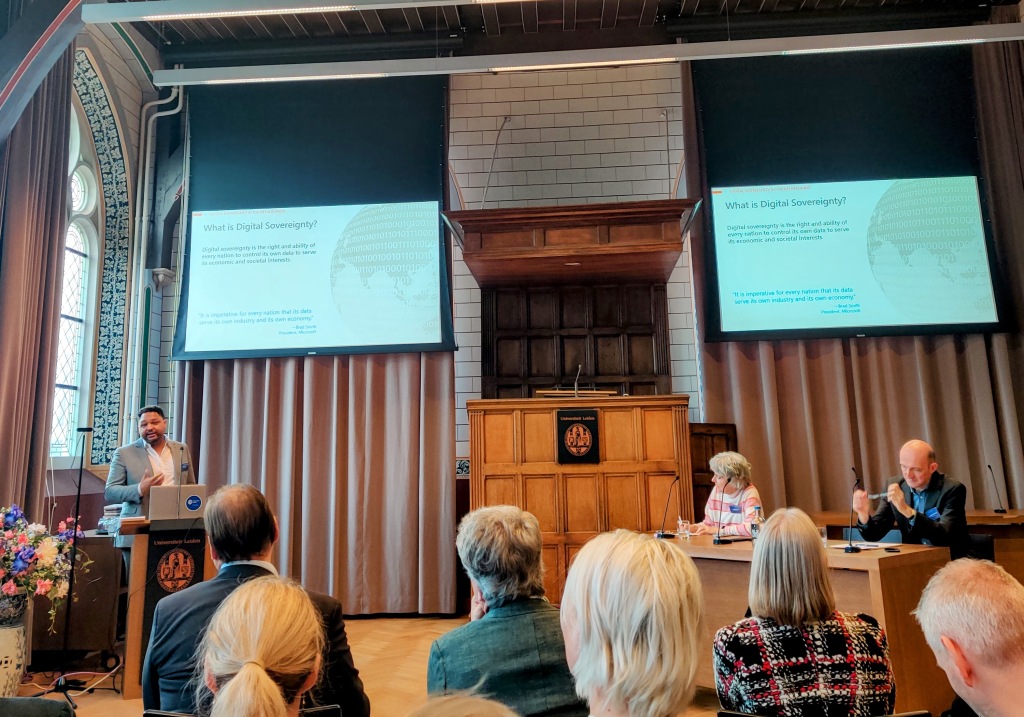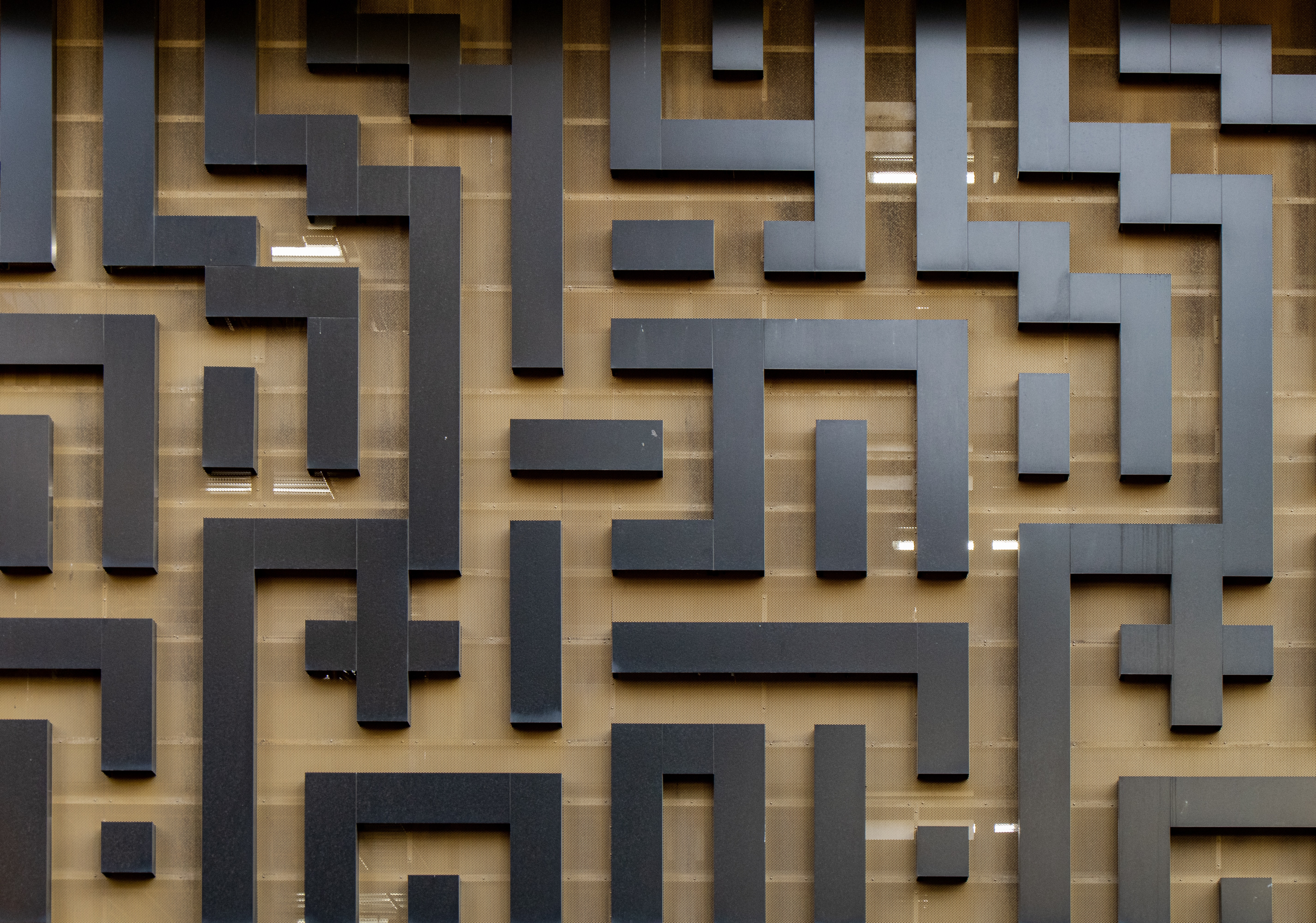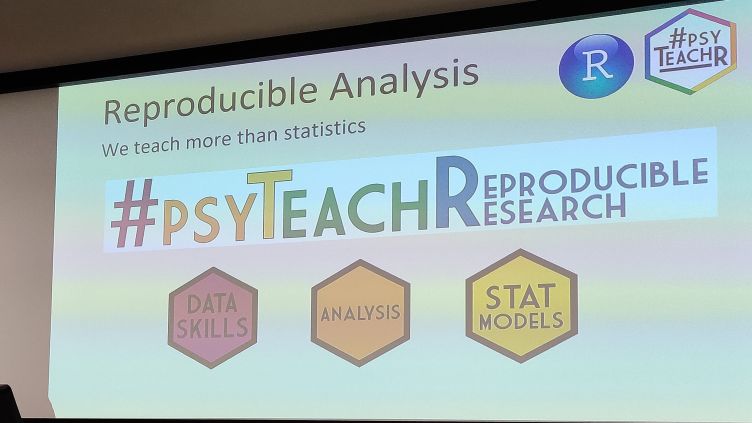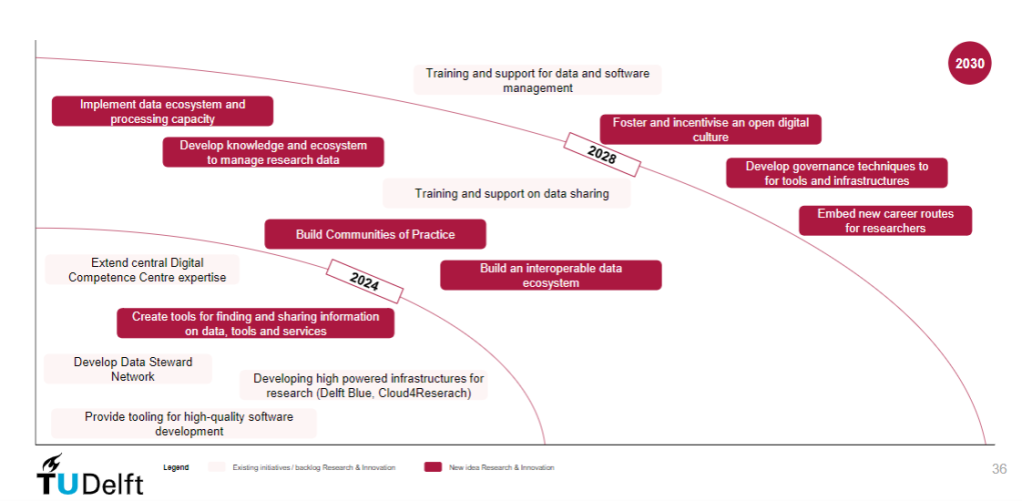Rethinking the library repository: a focus on masters’ and doctoral theses
Author: Connie Clare (Community Manager, 4TU.ResearchData)
TU Delft’s current Library repository infrastructure, based on Islandora, comprises different instances for searching and downloading various research outputs:
(i) The research repository comprises scientific publications, including journal articles and doctoral theses;
(ii) The research data repository (4TU.ResearchData) comprises data and software code;
(iii) The education repository comprises student reports, including bachelors and masters’ theses, and;
(iv) The cultural heritage repository comprises part of TU Delft’s heritage collection.
Aims and objectives
TU Delft’s Digital Services Programme aims to rethink the strategic direction and technical infrastructure of the Library repository. Part of this programme is focused on improving the impact and visibility of scholarly theses online.
As the final piece of study in a degree course, a thesis is one of the most important pieces of writing a researcher must undertake. Therefore, we believe it important to offer researchers an opportunity to present their theses in an innovative and attractive manner that enables them to feel proud of their work. In doing so, we must also ensure that the process of publishing theses, and underlying data and code, is easy and streamlined to improve the connectivity between different research outputs.
At present, our research and educational repositories provide basic metadata and standard pdf download functionalities. Below, we present some ideas for front-end developments and features that could improve the way we showcase scholarly theses in our library repository (see the original document here).
Metadata:
1. Are searchable in Google
Full text theses and metadata needs to be discoverable in search engines, such as Google and Google scholar, to ensure that highly valuable and impactful scholarly research is not hidden from the world. In particular, it appears that TU Delft masters’ theses exhibit poor findability on the internet which results in poor visibility and impact for students and supervisors.
2. Provides links to author and supervisor(s) profile
It could be beneficial to link the author and supervisor research profile to the theses. Taking a look at this example doctoral thesis from Bangor University’s Theses repository, a thesis metadata record links to the author’s research profile, their affiliation (School/Faculty/Department) (Figure 1), awarding institution, and supervisor(s) research profile(s) (Figure 2).


In this example, the author and supervisor researcher profiles provide contact information (including an ORCID ID), teaching and supervision responsibilities, education and academic qualifications, research outputs, professional activities and awards, peer-reviewed publications, research activities and a list of scholarly theses that they have contributed to (Figure 3).
Could a connection between TU Delft’s theses repositories and Research Portal (based on the Pure system for recording research outputs) provide a similar detailed overview?

3. Includes usage report metrics
Researchers are increasingly looking to usage report metrics, such as views, downloads, citations and altmetrics (e.g. social media mentions) to understand a publication’s impact. We report such metrics for data and software code items in our research data repository, and perhaps could also provide such information for scholarly theses.
By way of example, the University College London’s research repository provides information about the total number of downloads, downloads over the past month and year, and by country (Figure 4).

4. Includes a graphical abstract or word cloud
A graphical abstract could be provided alongside the textual abstract of a thesis to provide a single, concise, pictorial and visual summary of the main findings of the article. It could either be the concluding figure from the thesis or a figure specially designed for the purpose, which captures the content of the article for readers at a single glance.
A word cloud (tag cloud) or weighted list could also be used as a novelty visual representation of text data, typically used to depict keyword metadata (tags) on websites, or to visualize free form text. This can be used to quickly demonstrate the most prominent terms and keywords related to a thesis.
Scholarly theses:
1. Are available as an online visual and in downloadable formats
Currently, most repositories provide the option to download scholarly theses as a pdf document, and some, but not all offer the option to preview the publication online.
To make the thesis more visual and interactive it could be viewed as an e-book, such as this example doctoral thesis created using FlippingBook.com. The e-book format allows the reader to turn pages, or search contents using thumbnails or the search icon (Figure 5).

Sections of the thesis could be navigated by the table of contents, downloadable by chapter, and available for download in different formats to improve accessibility and interoperability.
Pdf formats are ideal for printing but are difficult to browse, challenging to read on handheld devices such as phones, hostile to screen readers, and impractical to search engines. What’s more, they’re large files that require extra software, memory and CPU power relative to the other formats described herein.
HTML, Epub and Mobi
These electronic documents are reflowable and resizable that can adapt their presentation to the output device. The advantage of these formats is that no matter the size of the device, the thesis will always be displayed correctly, they’re compatible with screen readers and search engine optimization.
HTML is a HyperText Markup Language file format used as the basis of a web page containing text and images. Converting a pdf thesis into html allows the reader to choose a font size and window width so text is easier to read and paragraphs are formatted to the reader’s preference which is more suitable for readers with visual impairments (read more here).
Epub and Mobi are the most commonly used e-book formats. Epub is a free, open standard, publicly available format that’s similar to HTML. As the most widely supported format, it’s supported by almost all e-readers and e-book reading apps. The Mobi format is specifically designed for mobile devices and e-readers with a smaller screen, including the Amazon Kindle.
2. Includes embedded multimedia
Research focused theses may contain a plurality of multimedia (e.g. images, graphics, figures, tables, videos and model simulations) that could be better showcased in a HTML ebook format. For example, images could be individually downloaded as a .jpg or .gif file for reuse.
It might also be useful to display multimedia, such as figures, as a slideshow that can be viewed separately from the thesis (Figure 6).

3. Provides links to underlying data and software code
In order to improve connectivity between the research/educational repositories and research data repository, it would be beneficial to provide a link between theses and underlying data and software code published in 4TU.ResearchData (Figure 7).

4. Includes a citation grabber and bibliography maker
There are a multitude of reference management tools and citation generators available to make creating citations, reference lists and bibliographies easier. An in-built citation grabber could automatically download citations within a thesis in a selected format (BibTeX, EndNote, RefMan, RefWorks) and creates a bibliography that can be downloaded separately from theses.
5. Can be linked to a professional portfolio
Students and researchers are often enthusiastic to link their thesis and graduation reports to their professional portfolio or CV. Perhaps this could be facilitated by creating an interactive webpage to showcase the thesis (Figure 8).

With grateful thanks to Alastair Dunning (Head, Research Services), Amineh Ghorbani (Assistant professor, Faculty of Technology Policy and Management) and Jeff Love (Data Steward, Faculty of Industrial Design and Engineering) for contributing ideas that lead to the creation of this article.
If you have ideas for how to showcase masters’ and doctoral theses at TU Delft, please contact us, we’d love to hear from you.
















